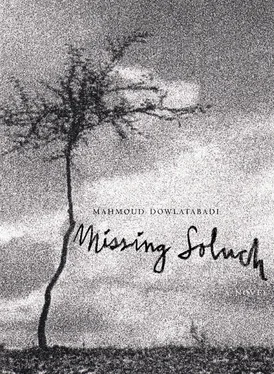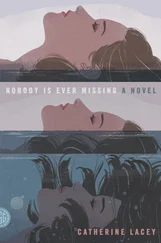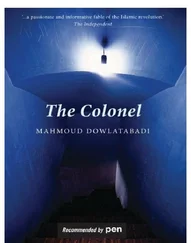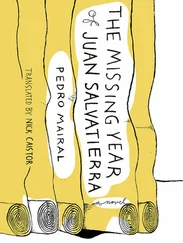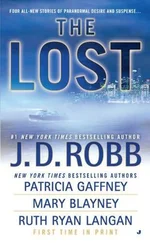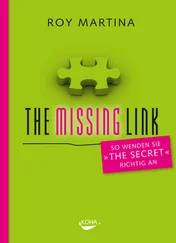Soluch’s children — if only for an interlude — no longer addressed each other with anger, insinuations, or insults. Even if not precisely generous in their kindness to each other, which perhaps was impossible to expect, they were at least no longer enemies. They no longer went about their chores wearily, begrudgingly. Motivated now by something other than compulsion, their steps were marked with a hint of enthusiasm. Their hearts were lit by something new: passing out of darkness. One could perceive this feeling budding forth in their every action. Winter’s ramparts were crumbling to dust beneath their feet.
“Where are we going?”
“To the grass fields!”
Abbas had answered Hajer.
Abrau asked his sister, “Do you know how to boil bilqast ?”
“Why shouldn’t I know how to?”
Abrau paid little attention to Hajer’s reply, distracted by a tiny lizard with ornate skin. He wanted to be careful so as not to crush it with his meandering steps, or to injure it with his scythe. He wanted to catch it alive. Around Zaminej, when children became bored and restless enough, they’d go in a group and chase a lizard. Once they caught it, they’d pinch its head so that it would open its mouth. Then they’d place a pinch of snuff on its tongue and let it go. The lizard would move in fits and starts, eventually becoming confused and staggering in circles around itself, losing its bearings. Finally, it would lie down and roll over. Its belly would expand. At this point, the most audacious of the children would take the sharpest stone at hand and pound it on the distended belly of the poor animal, freeing whatever contents had been inside. This diversion would then be over, save for a few children who stayed around to spit on the ground before leaving.
Abrau backed away from the lizard.
“Let it go to live its own life. Why bother it? It’s not in anyone’s way!”
Abbas’ tone was kind and brotherly.
“Want to throw stones?”
Abbas bent over and took a hand-sized stone from the ground.
“What target?”
“Over there! Next to the stream. Throw it from right here.”
“What’s the prize?”
Abbas hesitated.
“It’s … two bunches of dates!”
“Whoever loses pays!”
“Whoever loses pays.”
“Who goes first?”
“First … you.”
Abrau told Hajer to stand by the edge of the stream to watch over where the stones landed. Hajer ran ahead.
“Wherever a stone lands, mark it with a stick!”
Hajer stood by the edge of the stream.
“Go ahead!”
Abrau said, “Why don’t you go first. From here.”
“No. You go first.”
Abrau stepped forward and stretched. He put his weight on his left foot and felt the stone in his right hand before launching it. As Hajer watched, the stone landed on the banks of the stream. Hajer marked the stone by pressing a stick into the earth beside it. It was Abbas’ turn now. A smooth stone from his hand, passing over Hajer’s head and landing in the earth on the far side of the stream. Abrau looked at his brother. Abbas smiled broadly, showing his thick teeth. They went up toward their sister — Hajer was looking through the overgrowth for some edible plants. She found something, a kind of barley leaf. She knelt and pulled a stalk from the moist earth. Clods still clung to the roots, as they always do. The leaves were covered with a layer of dust.
Hajer took the roots in her thin fingers and shook the plant, to shake the dust from the leaves, until the stalk was clean. She was about to place the plant in her mouth when Abrau, like a baby goat, snatched the plant from Hajer’s hand and put it in his own mouth. With laughter in his eyes, he brought his bugle-shaped lips together and puffed out his cheeks. He ran away and Hajer ran after him. He ran laughing and, stepping onto a mouse hole, he stumbled. Hajer landed a few light blows on her brother’s shoulder — not really from anger, but simply to register her complaint. Abrau, doubled over in laughter, sat on his heels and began to cough. Half-chewed bits of the barley leaf — perhaps the roughest of all edible plants — had stuck in his windpipe. He coughed and coughed. His eyes filled with tears and all he saw was red. Hajer slapped her brother on the back and then began pounding his back with her fist. She’d learned this from Mergan. His coughing eventually stopped. Abrau lay on the ground, leaning on his elbow, laughter still in his eyes. Despite this, Hajer had to give voice to her complaint to him.
“Shame, shame on you. May it be worse than dog meat!”
Abbas called out with excitement.
“Hey! Hey! Jigriz plants! A whole lot of them!”
Hajer stood beside Abbas. Abrau gathered himself and ran to them. Next to the stream, in a small ditch, Abbas had found a cluster of jigriz plants. All three sat down. Abbas with a scythe, Abrau with a hoe, and Hajer with the broken handle of a spoon; all three scraped up and gathered bunches of jigriz — each bunch looking very much like a piece of goat’s liver. It goes without saying that their mouths were chewing as they worked and that their lips and mouths were stained with the color of grass. Abbas’ sack was half-full of the plant when he said, “Now we have to find bilqast as well. You can’t just have jigriz for dinner! Let’s split up and go in different directions.”
“Let’s go!”
They left their bags and satchels beside the stream and each went in a different direction.
The field was thinly covered with greenery. The new overgrowth was here and there more thickly woven into a shrub. The color of the growth and the color of the earth washed into each other: date-brown and green. Here and there a shrub of bilqast ; here and there some jigriz . Everywhere the fragrance of fresh rain on earth. Footprints leave marks on light earth. The earth was claylike. They focused their eyes, cutting down handfuls of thorny overgrowth, gathering it inside their shirt-tails. Occasionally they would look at each other with hidden glances. Looking, searching, moving more quickly. It was a secret competition. The competition was the natural essence of the work, an essence that occasionally became apparent and naked. Most often this competition manifests itself through animosity. But not this time; this time it was hidden. The two brothers and their sister, each wanted to have the bigger harvest of greens. At least, each one wanted to have no less than any of the others.
As they began to regroup, they realized how far from each other they’d gone.
A man was sitting next to their things on the edge of the stream handling a bundle of jigriz . As they came closer, they recognized him — it was Karbalai Doshanbeh, Salar Abdullah’s short, barrel-bodied father. Sitting where he was by the stream, he looked like a large clod of earth. Despite his being short, he was thick-boned and strong. He had a round face, a prominent forehead, a long white beard, and eyes that had not yet lost a hint of youthfulness. In both winter and summer, he wore a woolen scarf that had once been white around his old skullcap. As far back as anyone in Zaminej could recall, Karbalai Doshanbeh wore this same scarf and the same skullcap. Whether for funerals or weddings, in snow or shine. The edges of the scarf had begun to fray and the ancient pattern in its weave had taken on the hue of gray mud. On the old man’s face one could see tiny red capillaries — especially on his large round nose, which seemed like it was cracked with lines and shriveled in the sun. A white weave of chest hair burst from the neck of his dirty and collarless shirt, the edge of which looked like a dark rosary hung around his neck. Despite this, his face and hands were always well scrubbed, and he never missed a prayer.
Читать дальше
